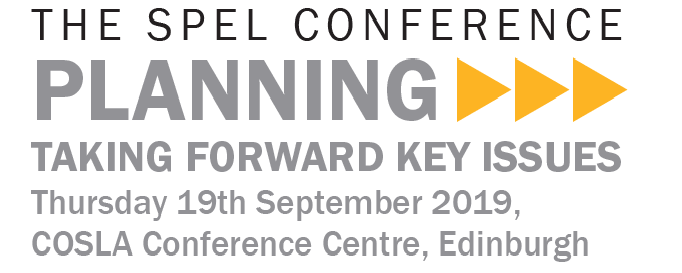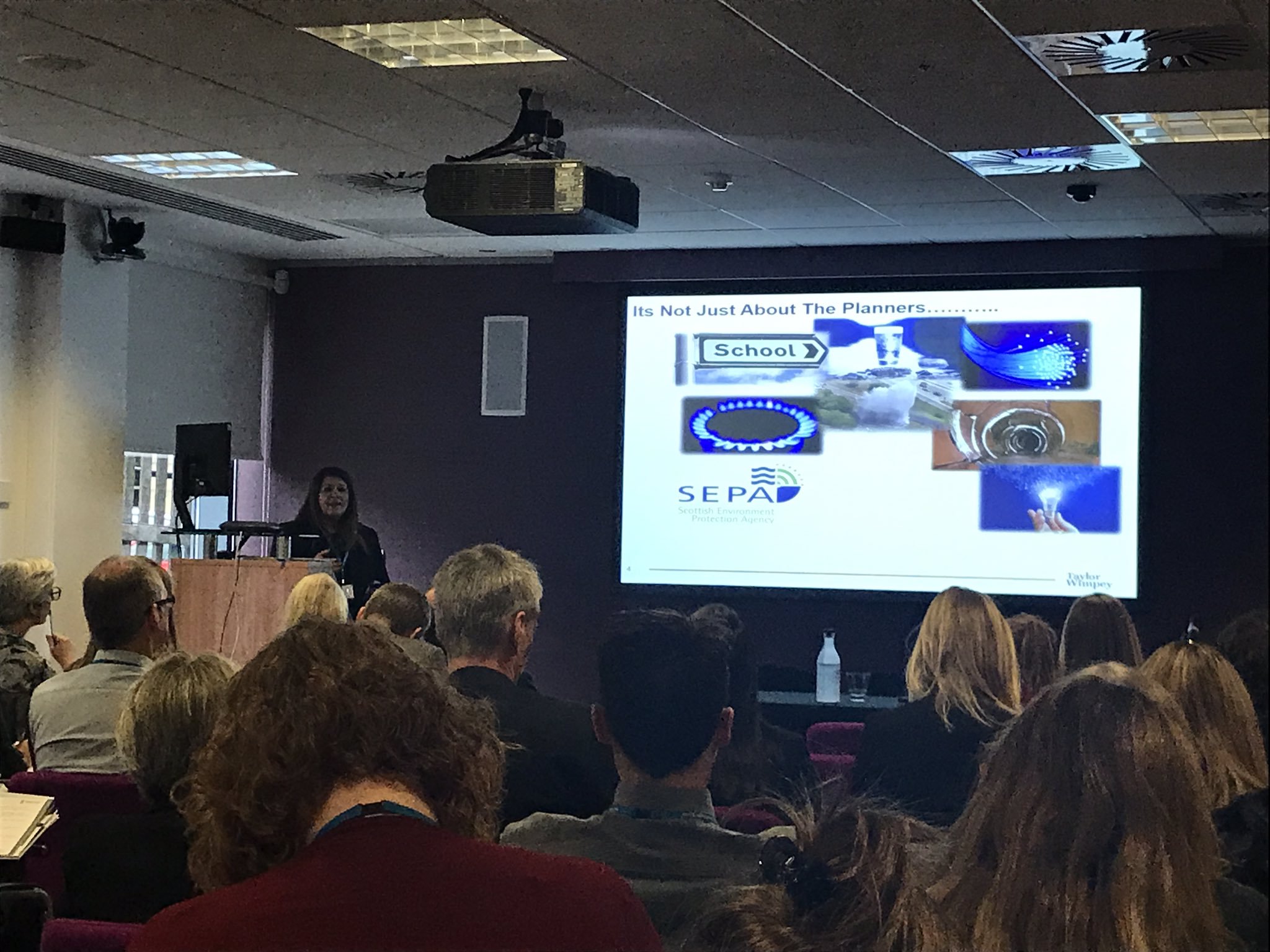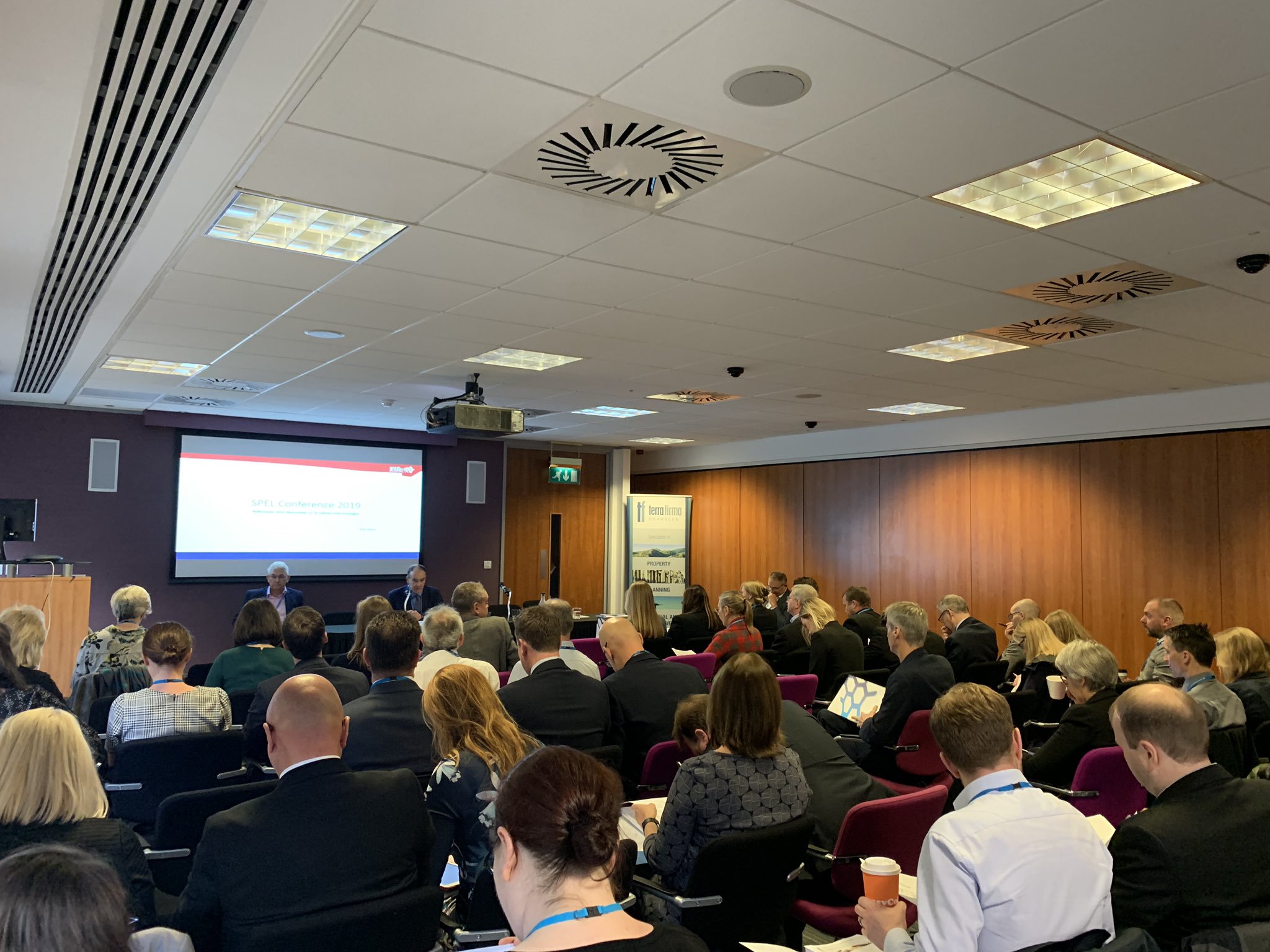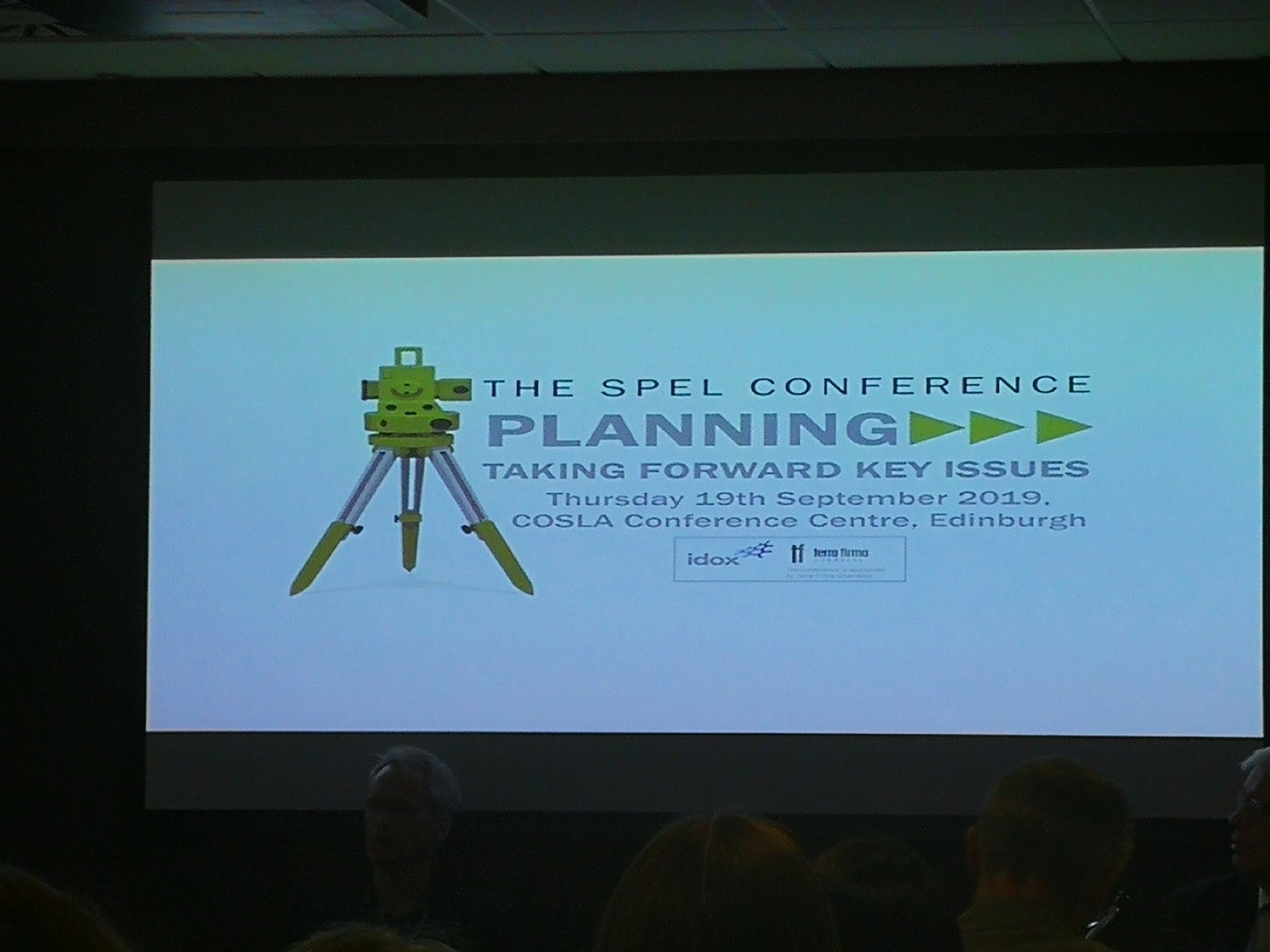 On 19th September 2019, we welcomed speakers and delegates to Edinburgh for the 29th Scottish Planning and Environmental Law Conference.
On 19th September 2019, we welcomed speakers and delegates to Edinburgh for the 29th Scottish Planning and Environmental Law Conference.
Before we began, the conference was invited to pause to remember and reflect on the life and achievements of Robert (Roy) Martin QC, who sadly passed away earlier this year. Roy was a long-time supporter and friend to the SPEL conference and a great addition to our speaker line up on many occasions. Everyone connected with SPEL would like to extend our condolences to Roy’s family and his colleagues at Terra Firma Chambers.
The conference brought together planners, planning lawyers, researchers and others who work in the field of planning, housing, development and infrastructure in Scotland for a day of discussion and debate around some of the key issues facing Scottish planning today and in the future.
Set to the backdrop of the most recent Scottish planning bill, the day focused broadly on two themes: the approach to housing, land value and infrastructure delivery; and the impact of the community empowerment agenda. As in previous years, themed discussion topics were supplemented by the always well-received case law updates from conference sponsors and planning and environmental law specialists Terra Firma Chambers.
The day began with some brief reflection from our keynote speaker, Keith Winter, Executive Director, Enterprise and Environment, Fife Council. Keith considered his years in the profession, and the great steps planning has taken from its earlier years. He also posed some interesting questions for delegates and other speakers alike about the potential for the future of planning, discussing “positive planning”; placemaking; the challenges of needing to meet both local and national level expectations and meeting the challenges that face the next generation of planners – such as climate change – head-on.
Housing, infrastructure and land values are all key topics for planners, and we spent the mid-morning session discussing all three. In the day’s longest session, panellists grappled with big topics for planning including whether the delivery of housing and infrastructure is becoming any easier; if more housing should (or could) be allocated to housing; how infrastructure will be funded in the future and whether we should be paying more attention to delayed sites which have already been granted approval.
Panellists brought a wealth of experience and perspectives to the discussion, with contributions from Taylor Wimpey, Homes for Scotland, Scottish Futures Trust, Lichfields, Renfrewshire Council and the Scottish Land Commission. The wide-ranging discussions on the supply and allocation of land for development, the implication of development for infrastructure and how multiple partners – not just planners – need to work together in order to create wonderful places where communities can live and work.
The afternoon session was dominated by discussions of community empowerment in planning and what opportunities and challenges the community empowerment agenda in Scotland could bring for the profession. A panel discussion which brought a refreshing range of perspectives was well received by an audience of delegates who were eager to ask questions and respond to comments from the panel, which included Nick Wright, from Nick Wright Planning; Pippa Robertson, director of Aurora Planning; Dr Calum MacLeod, Policy Director from Community Land Scotland and Antony McGuiness, Forward Planning team leader from West Dunbartonshire Council.
Panellists grappled with the challenges of aligning local place plans, local outcome improvement plans and local development plans; how community-led action can help address inequality and improve outcomes at a local level for communities and how integrating community and spatial planning is working in practice at the moment. The discussions proved to be one of the most successful of the day, with many delegates commenting on the value of the discussions to their own professional work.
The final session of the day explored the implications of the new planning act and its potential for delivering strategies which put place at their heart and enhancing the delivery of sustainable development projects across Scotland. Panel members included Stefano Smith, Director of Stefano Smith Planning and former Convenor of RTPI Scotland, Jacqueline Cook, Head of Planning at Davidson Chalmers Stewart LLP and Pam Ewen, Chief Officer of Planning at Fife Council and the Junior Convenor of Heads of Planning Scotland.
The conference provided an opportunity for reflection about the future of planning in Scotland and how practitioners from many different professions – not just planning and planning law – will have to come together to ensure that opportunities are seized upon.
And while it was widely acknowledged that the current model is far from perfect, and more exploration is needed to understand the potential and the application of the new planning legislation which has been introduced in recent years, it’s clear that there is willingness among the profession to learn lessons and to apply knowledge and determination to the current planning landscape to promote and develop planning in Scotland in the years to come so it can fully deliver for Scotland’s communities.
We would like to thank our speakers, those who attended and our sponsors, and hope to see you all next year!
If you enjoyed this article you may also like to read:
- Scottish Planning and Environmental Law conference 2018 is a ‘huge success’
- Highlights of the SPEL conference 2017
Follow us on Twitter to find out what topics have been interesting our research officers, or search #SPEL2019 for more insight into the conference day. Delegates can get in touch for copies of presentation slides where available.
We publish Scottish Planning and Environmental Law Journal every two months. More information on the journal and how to subscribe is available here.
Share
Related Posts
Tackling geographical inequalities is critical for ensuring that all parts of the country have the potential to prosper. When the UK was a member of the European Union, it was entitled to a share of funding from the EU’s structural ....
By Ian Babelon A new-old concept for proximity “Are we there yet?” Parents may patiently nod to their children’s insistent nudges on a 20-minute journey to… somewhere. Quite rightly, researchers have asked: twenty minutes to what? The answer may well ....
Following the adoption of National Planning Framework 4 (NPF4) at the end of February, the Scottish planning system and planning services are dealing with transitioning to a development plan system without statutory supplementary guidance and where the relationship to current ....




